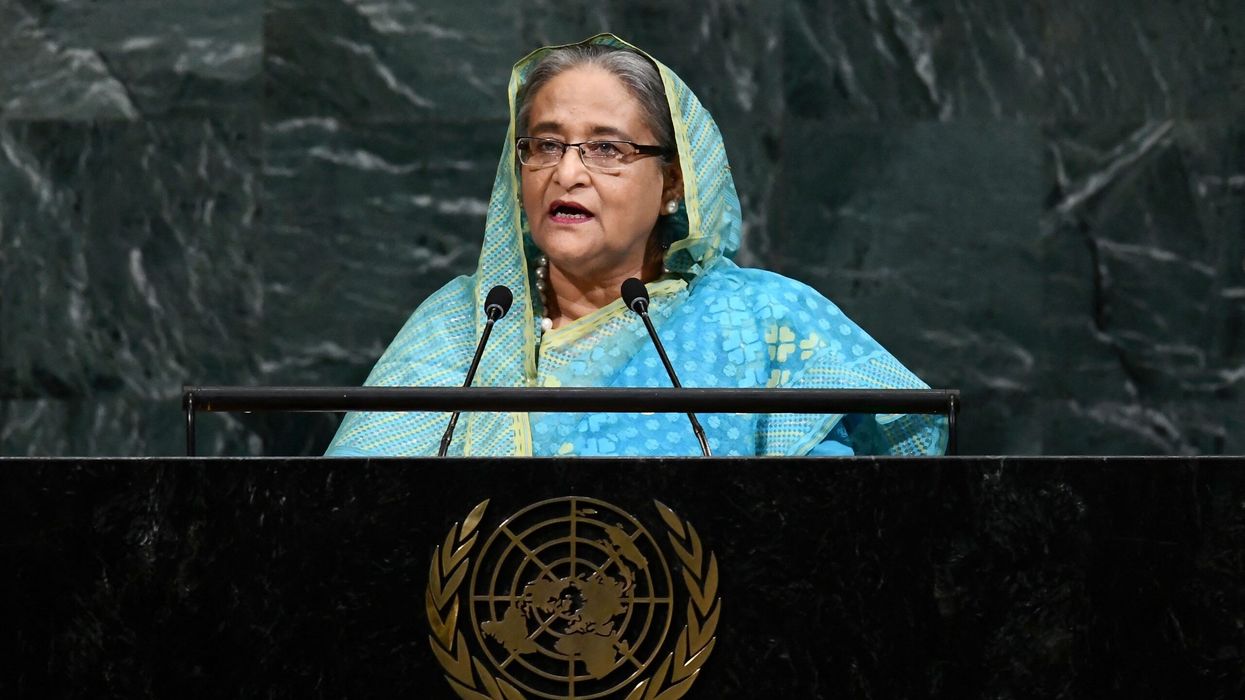Bangladesh prime minister Sheikh Hasina on Sunday (17) said that the BNP and its allies cannot secure public support through arson attacks and killings, as the country prepares for the January 7 general elections.
The opposition parties are calling for these elections to take place under an interim non-partisan government.
Hasina made the remarks while speaking at a discussion organised by the ruling Awami League to mark Victory Day, which Bangladesh celebrated on Saturday to commemorate its liberation from Pakistan in 1971.
"It is not possible to win the hearts of people through arson terrorism, and killing. They should know this, and they should act accordingly," Hasina was quoted as saying by The Daily Star newspaper.
During the discussion, Hasina asserted that the BNP is aware that people would not vote for "arson terrorists and killers" and, therefore, wants to foil the election and overthrow the government.
"They don't want to vote because they know very well that people of the country will not cast their votes for arson terrorists and killers," she said.
Last week, a train was derailed and several vehicles torched amid unrest over the elections, being boycotted by the Bangladesh Nationalist Party (BNP) led by former prime minister Khalida Zia.
The Awami League, led by Hasina, accused the BNP and its allies of carrying out the attacks ahead of the general elections.
The opposition parties have so far observed blockades in the 11th phase to mount pressure on the Awami League government to quit power and hold the next election under a non-partisan administration.
The BNP had boycotted the 2014 election but took part in 2018 polls. Hasina also said that the main opposition party does not want the welfare of the people but wants a regime of looting, money laundering and plundering public money, the paper reported.
Stressing that the Awami League has grown through "struggle against all odds and injustice and its roots are deeply rooted," Hasina said that the BNP can't overthrow the ruling party like this.
Urging the people of Bangladesh to create resistance against the criminals, arsonists, killers and saboteurs of rail lines, Hasina said, "These kinds of destructive activities must not continue in this country."
Political violence in the country has so far killed at least six people, including a policeman.
With political activity heating up, the Bangladesh Army has said it will deploy troops to maintain law and order as the country gears up for the general elections.
With the BNP boycotting the election, and no other credible opposition party against it, Hasina's Awami League is likely to gain an upper hand and likely to form the government for the fourth consecutive term.
The US and other major Western countries called for dialogue between the ruling Awami League and particularly with the BNP to ensure an inclusive and credible election, which, however, saw no headway due to reluctance from both sides.
(PTI)




